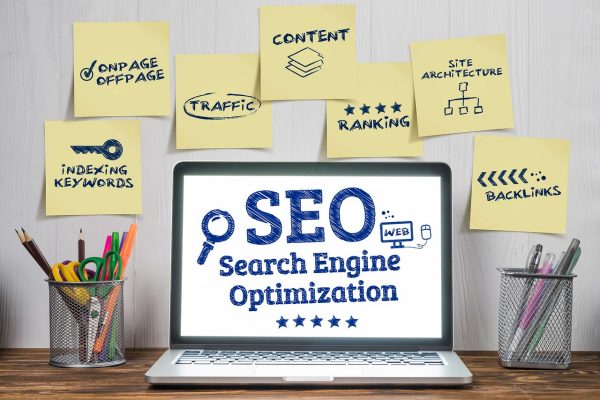

Why Your PPC Campaigns Are Underperforming – and How to Fix Them
If you’re putting money into pay-per-click advertising and not seeing the returns you expect, you are not alone. Many marketing teams struggle with optimizing their Google Ads campaigns to truly maximize every penny spent. So, what’s actually bleeding your budget dry? And more importantly, how can you reverse the trend?
Let’s dive into some of the most common pitfalls that cause PPC campaigns to underperform. Starting with the most significant budget wasters. And explore actionable solutions to boost your campaign efficiency and results.
The Biggest Budget Wasters in Google Ads
One of the most frequent reasons PPC campaigns drain budgets fast without substantial returns is poor targeting and lack of ongoing optimization. Here’s what typically sneaks up on marketers:
- Overly Broad Keyword Targeting: Using broad match keywords without proper negative keywords can lead your ads to appear for irrelevant searches, driving clicks but no conversions.
- Ignoring Search Term Reports: Without regularly reviewing what actual search terms triggered your ads, you risk wasting money on unintended or irrelevant traffic.
- Lack of Negative Keywords: Failing to exclude irrelevant or low-converting queries allows your ads to show for non-sales-intent searches.
- Poorly Aligned Landing Pages: If the landing page doesn’t match the ad’s promise or keyword intent, users leave quickly, hurting Quality Score and increasing costs.
Is your budget slipping away on clicks that don’t convert? Tracking and continuous refinement are indispensable.
Refining Keyword Match Types for Better Cost-Efficiency
One of the simplest yet powerful levers for boosting PPC performance is smart use of keyword match types. Are you deploying your keywords in a way that balances reach and relevance?
Google Ads offers several match types:
- Broad Match: Offers widest reach but risks irrelevant clicks.
- Broad Match Modifier: (now partially integrated into Broad Match) helps control while capturing diverse queries.
- Phrase Match: Ads show only for searches with your keyword phrase; good balance.
- Exact Match: Ads show only for searches exactly matching your keywords; highest precision.
Using mostly broad match keywords can burn through budget fast due to irrelevant traffic. On the other hand, leaning heavily on exact match may limit impressions, missing potential customers.
A recommended approach is to start with a mix: use exact and phrase match for high-intent keywords and include broad match with tightly managed negative keyword strategies to explore expanding traffic.
How Landing Page Relevance Impacts Quality Score and Cost Per Click
Have you ever clicked an ad only to land on a webpage that felt completely disconnected from what you expected? Annoying, right? This mismatch not only frustrates users but also drives up your cost per click by lowering your Quality Score.
Quality Score is Google’s way of judging how relevant and useful your ads and landing pages are to the searcher. Google rewards relevant experience with better ad positions and lower costs.
Key factors influencing landing page experience include:
- Content relevance to your ad text and keywords
- Clear and fast-loading page design
- Mobile friendliness
- Easy navigation to next steps (like purchase or sign-up)
Improving landing page relevance means making sure the page delivers exactly what the ad promises and aligns perfectly with the keyword intent driving the click. The closer the alignment, the better your campaign ROI.

Marketing professionals analyzing PPC campaign performance data to optimize Google Ads budgets
Identifying Intent Misalignment in Your Ad Copy
If your ads are click-worthy but fail to drive conversions, it’s time to reconsider your ad copy’s alignment with user intent. Are your messages speaking directly to what your audience is searching for?
Users exhibit different intent when searching: informational, navigational, transactional, or commercial investigation. Your PPC ads need to reflect and respect these intents to be effective.
For example, if a user is ready to purchase, your ad should highlight benefits, offers, or calls to action clearly emphasizing a buying opportunity. Ads focused on broad awareness or education require a softer approach and should lead to informational landing pages.
Ignoring intent leads to wasted clicks from users who aren’t ready to convert, while perfectly aligned high-converting ad copy strategies encourage quicker decision-making and improve conversions.
Tools to Audit and Reset an Underperforming PPC Account
Feeling stuck with a campaign that just won’t improve? Before pouring more money into it, conduct a comprehensive audit using specialized tools:
- Google Ads Editor: Review and bulk-edit campaigns efficiently.
- Google Analytics: Analyze user behavior post-click to identify leaking points.
- Search Term Reports: Discover and block irrelevant keywords.
- Optmyzr: Advanced PPC automation with audit features.
- SEMrush or Ahrefs: Competitor analysis and keyword research.
A detailed audit can uncover hidden issues like attribution errors, budget misallocation, or neglected negative keywords. Resetting your campaigns with data-backed insights lays the foundation for stronger future performance.
Keep in mind, PPC success is a cycle of ongoing testing, learning, and recalibrating. Luck rarely has a role here. Strategic PPC optimization techniques drive sustainable results.

Using PPC audit tools to identify underperforming elements in Google Ads campaigns
Wrapping Up: Taking Control of Your PPC Campaigns
If your PPC campaigns are underperforming, consider the journey from targeting, keywords, ad copy, through to landing pages. Each point is a vital link in the chain that influences your campaign’s overall success.
Ask yourself: Are your keywords precise enough? Does your ad copy match what the user is actually looking for? Is your landing page experience seamless and relevant?
When you tackle these areas thoughtfully, you stop budget leaks and start driving efficient traffic with intent to convert. Remember, the best PPC campaigns aren’t just about spending money. They’re strategic investments in customer acquisition.
If you’re ready to boost your Google Ads performance, take the next step: audit your existing campaigns, refine your keyword strategy, align your ad copy with intent, and optimize that landing page experience. This approach isn’t just about fighting fires. It’s about building a sustainable PPC foundation that delivers a strong return.
Frequently Asked Questions
What are the most common mistakes that lead to PPC budget waste?
Common errors include using overly broad keywords without managing negatives, failing to analyze search terms, poor ad-to-landing page relevance, and ignoring user intent when crafting ad copy.
How can I improve my Quality Score in Google Ads?
Improving Quality Score involves enhancing ad relevance, aligning landing pages closely with ad copy and keywords, ensuring fast page load times, and focusing on positive user experience.
Why is keyword match type important in PPC?
Different match types control the breadth and precision of your ad targeting. Choosing the right mix of exact, phrase, and broad match keywords with negative keywords affects both cost and effectiveness.
What tools can help audit my PPC campaign?
Tools like Google Ads Editor, Google Analytics, Optmyzr, SEMrush, and Ahrefs provide detailed insights to identify issues and optimize campaigns strategically.
How do I align my ad copy with user intent?
Understand the user’s stage in the buying funnel and craft ads specific to that intent. Transactional ads for buyers ready to act, informational ads for those researching, and so on.







